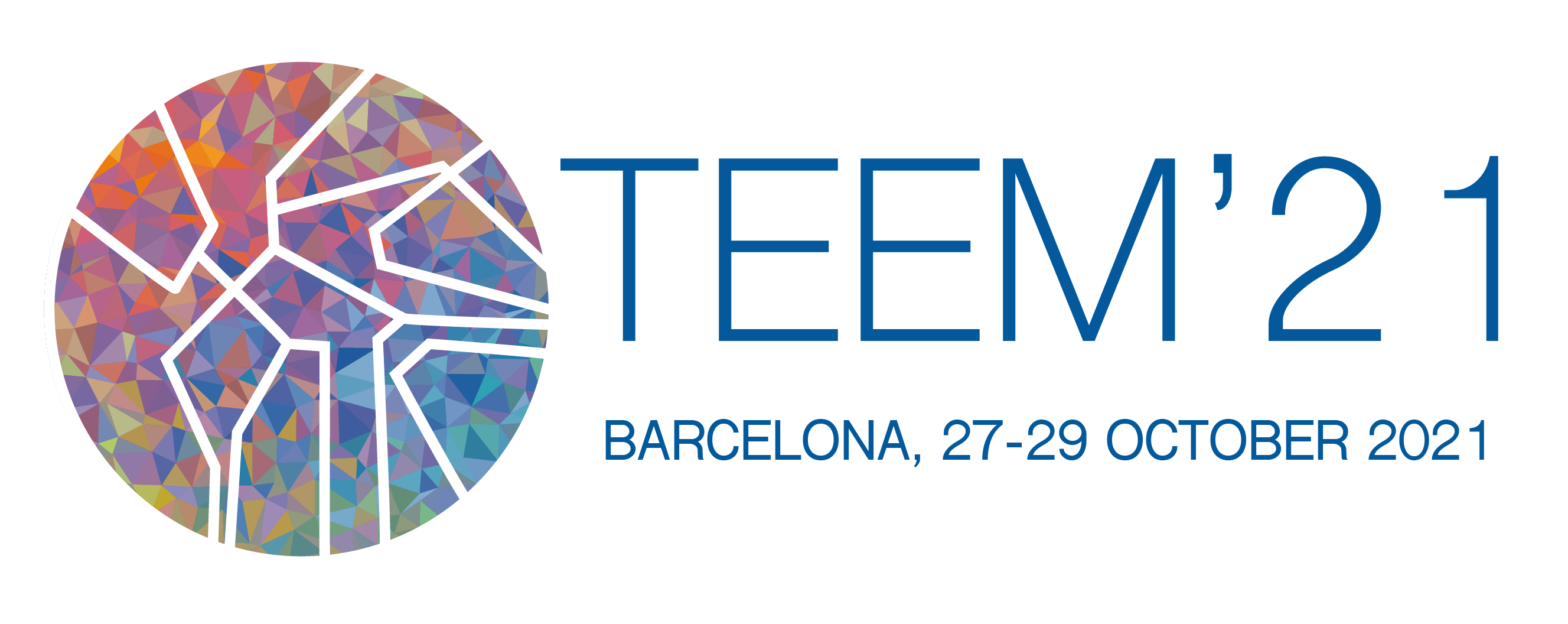Presentation
If something has exceptionally changed in education, it is the ecologies in which people learn that are now full of emerging resources and technologies that scatter learning experiences across institutional and personal contexts. Personal Learning Environments (PLE), embody the ecologies in which people learn, how the elements of those ecologies interact to transform the learning activity, what this means for the practice of teaching and learning, and how people take advantage of the possibilities to learn they already have.
The PLE disrupting educational character in connecting formal, non-formal and informal learning experiences has been one of the most promising aspects of this topic. By integrating those experiences, PLEs potentially would make lifelong learning or continuous learning an achievable goal. More specifically, PLEs enable everyday citizens to leverage technology to build and pursue meaningful, adaptive, and flexible education pathways to accommodate their learning, work, and life goals and become successful agents and curators of their own learning over their lifetime.
But this track does not expect to explore PLE as a new topic, on the contrary, this aims to take a look at the role PLE are playing nowadays (after more than 10 years from the first PLE Conference edition), especially in the current challenging circumstances, and explore emergent practices for living, learning and working in relation to PLEs and the new understandings and underlying needs that arise around these practices in our contemporary society. Participants are invited to submit their ideas, research and/or practice under the topics listed below.
Topics
• PLE Theories and Frameworks
• PLE and Networked Learning
• AI and the use of data for PLE
• PLE and Emerging Pedagogies
• PLEs in Formal, Informal, and Lifelong Learning Contexts
• PLE, New Literacies, Identity, Ownership and Agency
• PLE and Open Education
• Future Challenges for Thinking About PLE
Track Instructions and Program (Thursday 28th, VIRTUAL, 17.30-19.00, local time CET, Support place B: Class 3.4, floor 3)
- what do we know about PLE?
- what aspects still give us questions about PLE?
- And what are the future research and development challenges around PLE?
In other words, come to our session prepared to discuss and talk.
Order of the presentations:
- ID 30: Supporting Students’ Control and Ownership of Learning in the Multimodal Learning from a PLE Perspective
- ID 45: The Personalized Learning Interaction Framework: Expert Perspectives on How to Apply Dimensions of Personalized Learning to Workforce Training and Development Programs
- ID 87: Personal Learning Environments: looking back and looking forward
- ID 88: A letter difference, not different; two complementary approaches for learning
- ID 147: Has Covid-19 emergency instruction killed the PLE?
- ID 138: Personal Learning Environments as Digital Spaces that are Collaborative, Adaptive, and Autonomous
- ID 9: Deeper Mapping: PLE diagrams, PKM Workflows and Scholarly Ontologies
- ID 135: Digital Skills for Building and Using Personal Learning Environments
Special Issue and future events
Track Scientific Committee
Nada Dabbagh (George Mason University, USA) – Chair
Graham Attwell (Pontydysgu, UK) – Chair
Linda Castañeda (Universidad de Murcia, Spain) – Chair
Ricardo Torres-Kompen (Universitat Ramon Llull, Spain)
Gemma Tur (Universitat de les Illes Balears, Spain)
Carlos Santos (Universidade de Aveiro, Portugal)
Patricia Bassani (Universidade Feevale, Brazil)
Koen Depryck (Vrije Universiteit Brussel, Belgium)
Victoria Marin (Universitat de Lleida, Spain)
Luis Pedro (Universidade de Aveiro, Portugal)
Alexander Mikroyanidis (Open University, UK)
Leo Havermann (Open Education Working Group, University College London, UK)
Annette Pedersen (University of Copenhaguen -DE)
Ilona Buchem (Beuth University of Applied Sciences Berlin)
Kamakshi Rajagopal (KU Leuven, Belgium)
Maria Perifanou (Aristotle University of Thessaloniki, Greece)
Arunangsu Chatterjee (University of Plymouth, UK)
